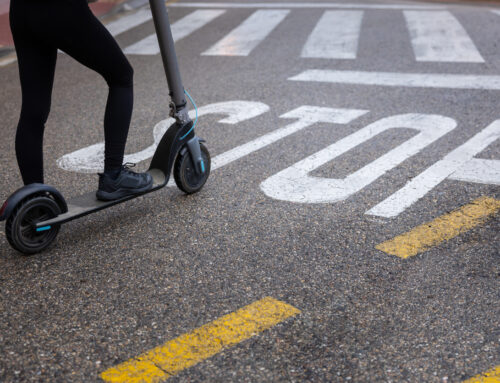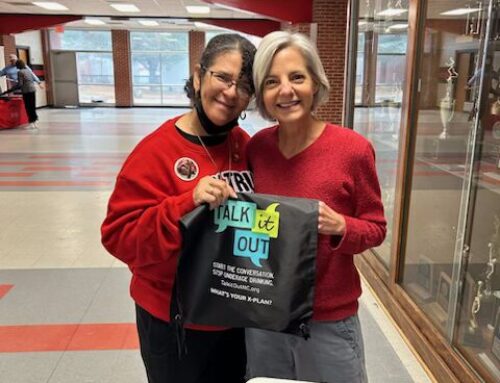How to Combat Peer Pressure: What Teens Can Do To Cope with Peer Pressure

How to Combat Peer Pressure
Peer pressure happens when friends or classmates try to influence your choices. Sometimes, this can be positive, like encouraging you to try a new sport. However, the fear of being left out can also lead to bad decisions, including underage drinking.
It can be hard to say “No” when you want to fit in. Teens who feel pressured by their friends are more likely to experiment with alcohol or other risky behaviors.
But the good news is that avoiding peer pressure while staying true to yourself is possible. With the right tools, both teens and the adults in their lives can navigate these challenges confidently.
Types of Peer Pressure
Spoken peer pressure is obvious because someone asks you to do something wrong. A friend might say, “Just take one sip! It’s not a big deal.”
However, peer pressure isn’t always direct. Sometimes, it’s unspoken. You may feel like you have to dress a certain way or act a certain way to be accepted.
Social media can make peer pressure even stronger. Seeing people post about underage drinking or other risky behaviors can make it seem like “everyone” is doing it. Remember, social media only shows part of the story, and just because something is online doesn’t mean it’s normal or safe.
Resilience: The Key to Overcoming Peer Pressure
Resilience means being able to stand up for yourself, make strong choices, and bounce back from challenges. Teens who build resilience are more likely to make healthy decisions—even in tough situations.
- Know your strengths. When you understand what makes you valuable, you’ll feel more confident in your choices.
- Practice decision making. Think through different situations and how you would respond.
- Set clear personal values and boundaries. Knowing what you believe in makes it easier to say No.
- Learn from mistakes without judgment. Everyone makes mistakes. What matters is learning from them and moving forward.
Practical Strategies for Teens to Handle Peer Pressure
Whether you’re in middle school, high school, or college, avoiding peer pressure is possible. Saying “No” can be tough, but there are ways to stay true to yourself without feeling awkward or alone. One of the best things you can do is prepare ahead of time.
Rehearsing Responses
Practicing how to respond in different situations can make it easier to say “No” when the moment arises. The more you practice these responses, the more natural they will feel. A simple, firm “No thanks” is often enough, but you can also suggest a different activity to shift the focus.
Holding a glass of soda or a bottle of water in social settings can prevent people from pressuring you to drink alcohol. You could also try suggesting a fun activity like playing a board game, watching a movie, or going out for food. Using humor can also help, like joking, “Nah, I need all my brain cells for next week’s math test!”
By taking control of the situation, you show confidence in your choices while keeping things positive. Remember, you always have the power to say “No” and walk away. Learn easy refusal skills before your next party.
Using the X-Plan
Sometimes, just saying “No” isn’t enough, and you may need a way to leave a situation quickly. The X-Plan is a simple but powerful strategy where you and your parents create a secret code. If you ever feel uncomfortable, you can text “X” or another predetermined code to a parent or trusted adult. They’ll come pick you up—no questions asked. This gives you an easy way out without worrying about what others think.
Surrounding Yourself with Supportive Friends
Another important strategy is to surround yourself with friends who respect your choices. The people you spend time with influence your decisions more than you might realize.
True friends won’t pressure you into doing something that makes you uncomfortable. Instead, they’ll support your boundaries and encourage positive choices. If you find that certain friends make you feel uneasy or constantly push you toward risky behavior, it may be time to rethink those friendships.
Trust yourself, and don’t be afraid to lean on the people who support you. Avoiding peer pressure isn’t about missing out. It’s about making choices that keep you safe and true to who you are.
How Parents Can Help Teens Resist Peer Pressure
Many teens face pressure to engage in risky behavior, whether to impress someone or feel included. As a parent, one of the most powerful things you can do is strengthen teen decision making—no matter the situation.
Preparing your teen for tough situations gives them the tools to handle anything that comes their way. Teens who understand their boundaries and trust their instincts are more likely to make decisions that protect their wellbeing.
Talking through scenarios with your child, practicing responses, and ensuring they can always call you reduces fear of the unknown. Here are a few other parenting strategies:
- Create an open dialogue. Let your teen know they can talk to you about anything without fear of punishment.
- Set realistic expectations and clear family values. Be clear about what you believe in and why it matters.
- Encourage independence and decision-making skills. Give your teen chances to make their own choices so they feel confident standing up for themselves.
- Model healthy behaviors. Show your teen how to handle stress in positive ways, like exercising or talking things out.
- Make teens aware of resources and support systems. Whether it’s a trusted teacher, a coach, or a support group, let your teen know there are no shortage of places for them to turn even if they encounter a situation where it doesn’t make the most sense to come to you.
Start the Conversation Today!
Peer pressure can be tough, but with the right tools, teens can stay strong and make healthy choices. If you or your teen want more guidance, check out our on-demand webinars or register for upcoming sessions. Start the conversation today and build resilience in teens.



